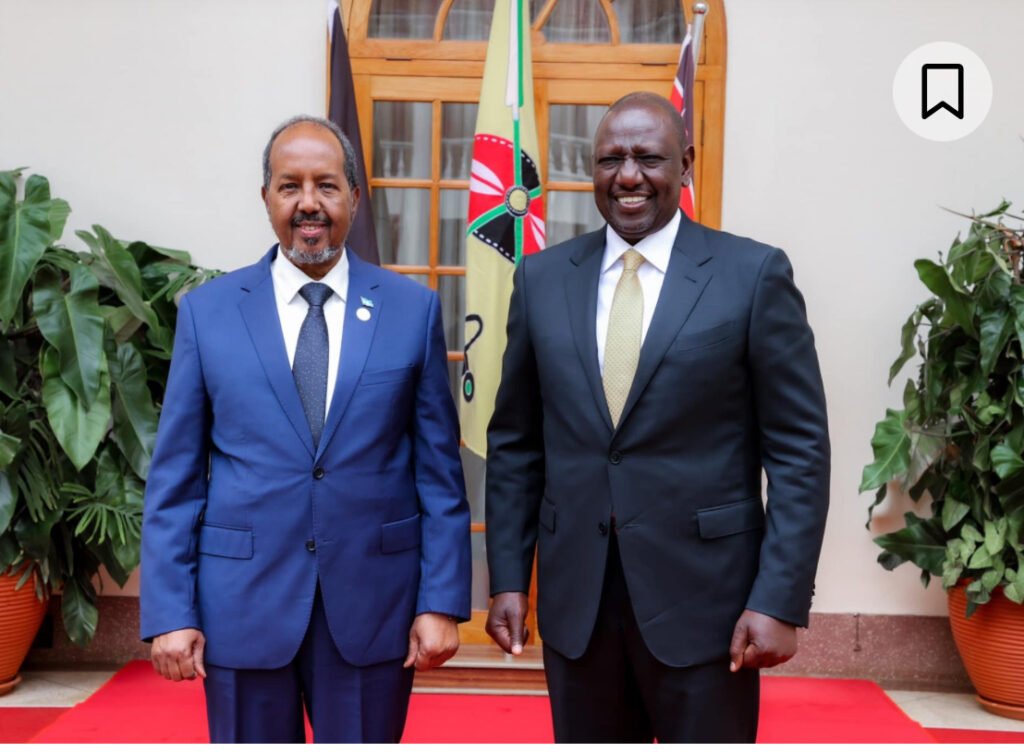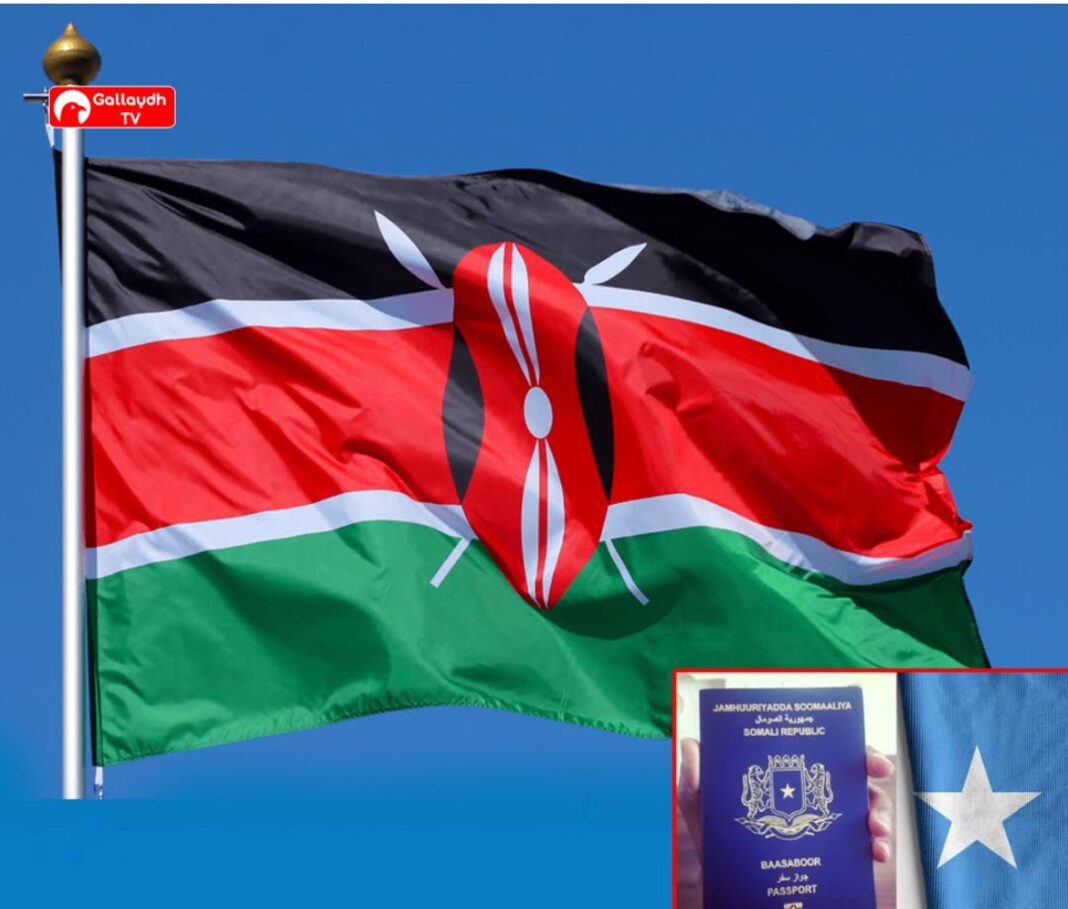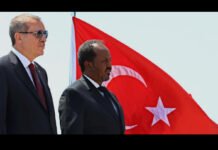By Horn Africa News Staff
Mogadishu — Kenya’s recent move to exempt African countries from visa requirements has ignited a diplomatic storm in the Horn of Africa, as Somalia was conspicuously excluded from the policy.

Nairobi described the visa exemption as part of a broader initiative to open its borders to African travelers and boost tourism and investment. However, the decision has exposed deep geopolitical divisions, particularly with Somalia — a key neighbor and partner in regional security.
Kenya’s Ministry of Interior cited “security challenges and instability” as the reason for maintaining standard visa requirements for Somali nationals, despite extending the new Electronic Travel Authorization (ETA) system to many other African countries.
The decision is seen as a diplomatic blow to Somalia, carrying both economic and social consequences. The timing has drawn particular criticism, given that Kenya and Somalia are officially allies in the fight against the militant group Al-Shabaab, with Kenyan troops deployed in Somalia under the African Union Transition Mission in Somalia (ATMIS). Critics say the move undermines their joint sacrifices in the war on terror.
“This is not about security, it’s political,” said a Somali diplomat who requested anonymity. “We’ve fought terrorism side by side, yet Somalia is left out, while countries facing internal conflict like Sudan, the DRC, and the Central African Republic are included. What message does that send?”
The exclusion raises uncomfortable questions about fairness. Many observers see it as a snub that ignores the recent progress Somalia has made in terms of governance and security.
Tensions Over Maritime Ruling
The visa row comes amid lingering mistrust between the two nations. In 2021, the International Court of Justice (ICJ) ruled in favor of Somalia in a maritime dispute with Kenya. Nairobi rejected the ruling, inflaming tensions further.
Although diplomatic relations have since been restored, trust remains fragile. This latest visa move threatens to reignite hostilities at a time when regional cooperation is vital — especially as Somalia prepares for the drawdown of ATMIS forces and seeks full integration into the East African Community (EAC).
Kenya is one of Somalia’s top trade partners. Goods, services, and people frequently cross the border. The miraa (khat) trade alone is worth millions of dollars annually, vital to both Kenyan farmers and Somali traders. Nairobi also hosts tens of thousands of Somalis — students, medical travelers, and entrepreneurs — most of whom reside in the bustling Eastleigh neighborhood.
“This isn’t just symbolic — it directly affects our lives,” said a Somali businessman in Eastleigh. “We’re treated like foreigners while others are welcomed. This hurts our business and our dignity.”
Impact on Travel and Trade
The decision will significantly disrupt education, medical travel, and commercial supply chains for Somalis who regularly visit Kenya.
Mogadishu’s Silence Raises Eyebrows
So far, Somalia’s federal government has remained silent, issuing no official statement condemning or questioning Kenya’s decision. The silence has frustrated many Somalis, sparking confusion and public outcry.
Some analysts believe the silence may be a strategic diplomatic move, aimed at resolving the issue behind closed doors. But others argue the lack of visible leadership leaves a vacuum in public discourse, drawing criticism that the government is failing to defend its citizens or assert national dignity.
“There’s a risk that silence could be seen as weakness,” said regional analyst Abdullahi Warsame. “If Somalia doesn’t respond, it may open the door for future exclusions.”
Possible Responses on the Table
To respond effectively, Somalia must balance diplomacy with firm action. Strategic options include:
- Direct Diplomatic Pressure: Somalia could immediately initiate high-level talks with Kenya to formally protest its exclusion and seek a timeline for inclusion in the ETA system. These talks should emphasize security cooperation and economic implications.
- Suspending Miraa Imports: As a temporary measure, Somalia could suspend miraa imports — a move that would impact Kenyan farmers and traders, signaling discontent with the visa decision.
- Tightening Work Visas for Kenyans: Thousands of Kenyans work in Somalia’s telecoms, education, hospitality, and humanitarian sectors. Somalia could consider increasing visa fees or introducing restrictions, mirroring the challenges now faced by Somali travelers.
Turning Crisis into Opportunity
While Kenya may frame the visa decision as a domestic or security issue, its regional fallout is undeniable. For Somalia, this is not just about travel — it’s about dignity, sovereignty, and equality within the African continent.
The real challenge now is whether Mogadishu can turn public anger into strategic opportunity: to reaffirm its progress, strengthen regional ties, and assert its voice with clarity and conviction.
If Somalia remains silent, others will define its regional role. But by speaking out and taking action, this moment could become not just a setback — but a turning point.





